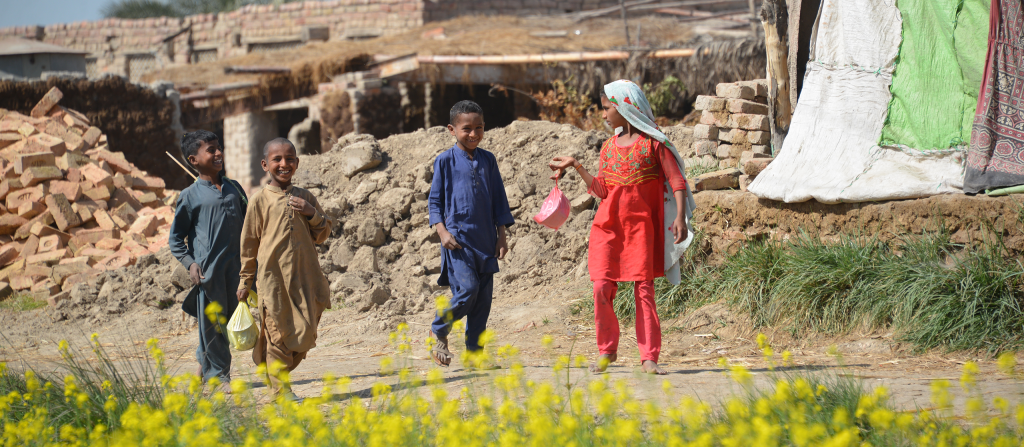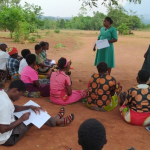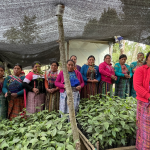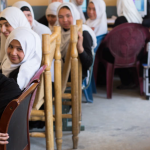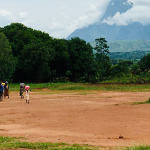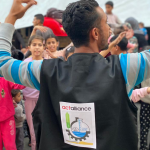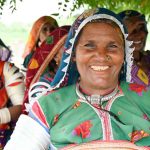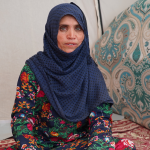Marvin Parvez is the Regional Director at Community World Service Asia (CWSA)—a long-time partner of PWS&D. Based in Pakistan, Marvin provides leadership to CWSA’s staff of approximately 300 people. PWS&D works with CWSA to provide emergency relief, food security, health, education and livelihoods programs.
Starting work in the development and relief sector in 1990, Marvin was motivated to serve from a young age. High school involvement with the YMCA and his local church fed his desire to work for the church. Marvin joined Church World Service after completing university and has been serving communities in Asia, the Pacific and Central Asia ever since.
Today, as regional director of CWSA, Marvin has overseen the move from being part of the global Church World Service program to become a fully nationalized organization. CWSA is a Pakistani-Afghan organization, with leadership management and governance coming from those two countries.
What do you love most about your work?
I loved it from day one and continue to love what I do. It comes from my faith and what I understand service to be—the servant King—ultimate humbleness is when you wash the feet of the disciples or, in our case, the communities.
Why is the model for how CWSA works so important?
A lot of our work comes from missionary movements, where the relationship with the local community and local families was central. The communities are the heart of our work and part of our DNA. National organizations like CWSA understand the local context and are the most capable first responders. We are on the ground. It helps when we have a national team.
How does the partnership with PWS&D impact your work?
This partnership is a way of practicing stewardship. I love the word stewardship. It’s how we treat each other, it’s how we manage resources, it’s how we manage creation. Stewardship is what should dictate the decisions that we make in the work.
It’s an empowering model for the whole sector. There are more resources available to us, more technical support. And it’s more. I like the terms where people are talking about decolonizing so that you’re actually sharing power, which is difficult.

In the past several years, the situation in Afghanistan has been especially complicated. How have you dealt with that?
The situation in Afghanistan is the worst humanitarian crisis and no one is talking about it. Everybody’s talking about Ukraine, so we don’t talk about Afghanistan anymore. Jesus had strong solidarity and love for marginalized people, and I see some of that same thing when I think about Afghanistan.
Afghanistan is an example of why being a national organization is so important. If we were totally dependent on expatriate staff in Afghanistan, after the Taliban takeover we wouldn’t have been able to function. I’m not saying the lives of my Afghan colleagues weren’t at risk, but they understand the language, the culture, the tribal linkages.
We also have a gift which we didn’t have in the 90s—digital media, social space. Unfortunately, not every young woman in Afghanistan has a smartphone, but many do. Compared to what we could reach in the late 90s, our capacity is much bigger today to reach many more people.
What keeps you hopeful in this work, despite the challenges?
I do get frustrated. I don’t see voices of peace or talk of reconciliation. The sadness comes from the fact that I don’t see global leadership for the peace initiative. But I was encouraged by seeing a delegation of African heads of state go to Ukraine. I’d like to see Christian leadership do the same.
Ultimately, to serve communities in need with love is the most important thing. Love is the most important commandment, and we should focus on that. Obviously, we have to be strategic and smart about it, but everything is possible. When we work together, when countries work together, we can do big, hard things.
*This story was first printed in the Fall 2023 issue of Presbyterian Connection newspaper.
